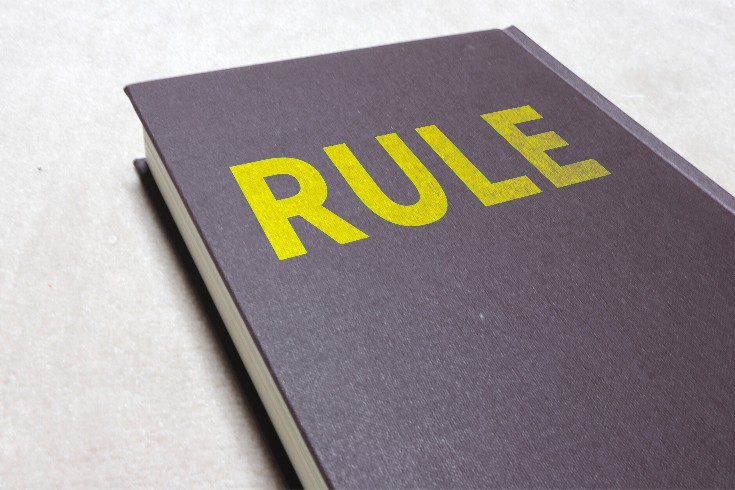The Role and Responsibilities of Statutory Auditors in Japanese Corporate Law

In Japanese corporate governance, the statutory auditor system plays a unique and extremely important role. It is an institution designed to monitor and correct the execution of duties by directors, maintaining the sound management of companies. This system has evolved distinctly from the Audit Committees widely prevalent in Anglo-American jurisdictions and the German ‘Supervisory Board’. Consequently, it may present aspects that are difficult to comprehend from an international perspective. The Japanese statutory auditor system is based on a unique governance structure where the board of directors and the statutory auditor board operate in parallel, with both bodies overseeing and supervising business execution, and the statutory auditor board also having oversight and supervisory functions over the board of directors, adding a layer of complexity.
The role of statutory auditors in Japan has evolved over time from pure accounting audits to operational audits, and even to the auditing of the appropriateness of management. This historical development is essential to understanding the broad scope of duties of current statutory auditors and also leads to discussions about the overlap of roles with external directors. The dynamic nature of the Japanese statutory auditor system indicates its flexibility and, at the same time, the existence of debates regarding its effectiveness. This article aims to provide a detailed explanation of the role, authority, obligations, and responsibilities of statutory auditors under Japanese Corporate Law, as well as relevant key case law. By using clear and understandable expressions, we promote a deep understanding of the mechanisms of corporate governance in Japan.
The Role of Statutory Auditors: Definition and Purpose Under Japanese Corporate Law
In Japanese Corporate Law, statutory auditors are positioned as one of the organs of a joint-stock company. Article 381, Paragraph 1 of the Japanese Companies Act clearly defines that “statutory auditors shall audit the execution of duties by directors (and accounting advisors in companies with such positions).” As this definition indicates, the primary purpose of statutory auditors is to monitor and verify that the directors’ execution of duties is in compliance with laws and the company’s articles of incorporation, and that it is carried out appropriately.
Statutory auditors play the role of a “stabilizing device” to maintain and stabilize the sound management of a company. This role involves not only detecting individual directors’ misconduct or errors but also contributing to the common management objectives of maintaining corporate credibility and improving performance through the “audit of management.” Statutory auditors are not business executors; their role is to oversee the execution of duties by directors and, when necessary, prompt corrective actions. Therefore, statutory auditors are required to perform their duties independently from the board of directors, making them an essential presence for ensuring that companies comply with laws and maintain transparent management.
The duties of statutory auditors are personalityized by encompassing both business audits and accounting audits. In business audits, they verify the legality and appropriateness of the directors’ execution of duties, while in accounting audits, they verify the accuracy of financial documents. This dual role, which includes both business and accounting audits, differs from many foreign audit committees that primarily focus on financial reporting. This broad audit scope allows statutory auditors to conduct more comprehensive monitoring of a company’s overall management, but it also means that they require not only accounting knowledge but also a deep understanding of general business operations. This comprehensive role is an important perspective for foreign companies to consider when evaluating the role of Japanese statutory auditors.
Under Japanese Corporate Law, not all joint-stock companies are required to appoint statutory auditors. While companies with a board of directors are generally required to have statutory auditors, certain companies meeting specific conditions are not obligated to appoint them. For example, this applies to companies with restrictions on stock transfers, companies without a board of directors, or companies with a board of directors that have appointed accounting advisors. In particular, companies with nominating committees or audit and supervisory committees are not permitted to have statutory auditors.
Although statutory auditors are legally positioned as independent from the board of directors, Japan’s traditional corporate culture, especially employment practices such as seniority-based promotion and lifetime employment, may affect the extent to which statutory auditors can exercise substantial monitoring and corrective functions against the management. This suggests a potential challenge in the operation of the system, where legal independence does not necessarily translate into substantial independence or influence. For instance, it may be difficult for statutory auditors who have been promoted from within the company to rigorously audit the management that facilitated their promotion.
The Authority and Duties of Statutory Auditors Under Japanese Corporate Law
Statutory Auditors in Japan are endowed with substantial authority and clear duties by the Japanese Companies Act to carry out their responsibilities from an independent position. These powers and obligations are essential for Statutory Auditors to effectively oversee the execution of duties by directors and protect the interests of the company.
The Primary Authorities of a Statutory Auditor Under Japanese Corporate Law
Statutory auditors are tasked with auditing the execution of duties by directors (and accounting auditors in companies with such positions) and must prepare an audit report as prescribed by the Ministry of Justice regulations under Article 381, Paragraph 1 of the Japanese Companies Act. This audit report is submitted to the shareholders’ meeting and serves as a crucial means for communicating the statutory auditor’s opinion on the company’s management status to the shareholders.
Furthermore, statutory auditors can at any time request business reports from directors, accounting auditors, managers, and other employees, and investigate the business operations and financial status of companies with statutory auditors under Article 381, Paragraph 2 of the Japanese Companies Act. They also have the authority to request business reports from subsidiaries and investigate their operations and financial status if deemed necessary for their duties under Article 381, Paragraph 3 of the Japanese Companies Act. This extensive investigative power is vital for the early detection of misconduct or improper execution of business.
Statutory auditors must attend board of directors meetings and express their opinions when necessary under Article 383, Paragraph 1 of the Japanese Companies Act. However, since statutory auditors are not members of the board of directors, they do not have the right to vote on board resolutions. This is an important distinction to note, as audit committee members in other countries often have voting rights on the board of directors.
In addition, if directors do not convene a board meeting or if a statutory auditor determines that there is a need to hold one, they can request the directors to convene a board meeting. If a notice of the meeting is not issued within five days of the request, specifying a date within two weeks for the board meeting, the requesting statutory auditor may convene the board meeting themselves under Article 383, Paragraphs 2 and 3 of the Japanese Companies Act. This is a significant authority that allows statutory auditors to intervene proactively when the board of directors is not functioning properly.
If a director acts or is likely to act outside the scope of the company’s objectives or in violation of laws or the articles of incorporation, and such action could cause significant damage to the company, a statutory auditor can request the director to cease such actions under Article 385, Paragraph 1 of the Japanese Companies Act. This right to demand cessation is a powerful preventive measure that allows statutory auditors to act before the company incurs serious damage.
In cases where litigation arises between a director and the company, such as when a director initiates a lawsuit against the company or when shareholders sue a director, the statutory auditor represents the company under Article 386, Paragraph 1 of the Japanese Companies Act. This ensures that the company’s interests are adequately protected even in situations of conflict of interest.
Finally, statutory auditors have the right to claim necessary expenses for the execution of their duties from the company under Article 388 of the Japanese Companies Act. This ensures that statutory auditors can perform their duties without economic constraints.
The Primary Duties of a Statutory Auditor in Japan
In addition to exercising the aforementioned powers, a statutory auditor in Japan also bears the following significant duties.
Under Article 381, Paragraph 1 of the Japanese Companies Act, a statutory auditor is obligated to prepare an audit report based on the results of their audit of the directors’ performance of duties. This report provides shareholders and other stakeholders with an independent opinion on the company’s governance status.
Furthermore, a statutory auditor must attend board meetings and express their opinions as necessary, as stipulated by Article 383, Paragraph 1 of the Japanese Companies Act. This ensures the appropriateness of the board’s decision-making by actively participating in discussions and raising concerns.
In addition, if a statutory auditor discovers that a director has committed misconduct or a significant fact in violation of laws or the company’s articles of incorporation, they must report it to the shareholders’ meeting without delay, as required by Article 384 of the Japanese Companies Act. This reporting duty serves an important function in exposing corporate misconduct and promoting its correction.
A statutory auditor also has the duty to conduct an accounting audit, which involves checking the existence and collection of documents that form the basis for the company’s accounting records, the establishment and operation of a preservation system, and compliance with various laws and regulations.
While a statutory auditor has the duty to attend board meetings and the right to express opinions, they are personalityized by not having voting rights in board resolutions. This structure emphasizes the auditor’s role as a “watchdog,” allowing them to check the legality and appropriateness of management decisions from an external standpoint without directly involving themselves in the decision-making process. This is a significant difference from many overseas audit committee members who have voting rights on the board, suggesting that the influence of a statutory auditor in Japan largely depends on their investigative abilities and the persuasiveness of their opinions.
The authority of a statutory auditor to request the convening of a board meeting, and even to convene one themselves if the directors do not comply, as provided by Articles 383, Paragraphs 2 and 3 of the Japanese Companies Act, along with the right to request an injunction against directors’ illegal acts under Article 385, Paragraph 1 of the Japanese Companies Act, indicates that the auditor’s role is not limited to post-facto auditing but also includes a preventive and proactive role in averting potential damage to the company. This emphasizes that the duties of a statutory auditor are focused not only on detecting fraud but also on its prevention.
The Responsibilities and Exemptions of Auditors Under Japanese Corporate Law
Auditors may bear various responsibilities under Japanese Corporate Law if they neglect their significant duties. At the same time, there is a system in place that allows for partial exemption from these responsibilities under certain conditions.
Types of Auditor Responsibilities Under Japanese Corporate Law
Auditors in Japan are primarily subject to civil liabilities, criminal liabilities, and administrative penalties.
As for civil liabilities, auditors have the responsibility to compensate a corporation for any damages incurred due to their negligence in performing their duties, as stipulated under Article 423 of the Japanese Companies Act. This applies when auditors fail to exercise the due care of a prudent manager. Furthermore, if auditors act with malice or gross negligence in the execution of their duties, or if they make false statements or records on significant matters that should be stated or recorded in the audit report (unless they can prove that they were not negligent), they are also liable for damages to third parties under Article 429 of the Japanese Companies Act. Additionally, false statements in important documents such as securities reports or quarterly reports may also lead to liability under the Financial Instruments and Exchange Act.
In terms of criminal liability (penalties), auditors may be subject to imprisonment or fines if they commit specific acts defined by the Japanese Companies Act, such as the crime of special breach of trust, its attempt, the crime of using false documents, the crime of embezzlement, or the crime of bribery related to the exercise of rights by shareholders, among others, as outlined in Articles 960 to 970 and others of the Japanese Companies Act.
Regarding administrative penalties (fines), auditors may be fined for violations of the Japanese Companies Act, such as making false statements in the audit report, failing to appoint a full-time auditor in the board of auditors, not keeping minutes of the board of auditors’ meetings, not explaining matters requested by shareholders at general meetings, or neglecting to appoint a temporary accounting auditor, as specified in Article 976-7 and others of the Japanese Companies Act. Administrative fines differ from criminal penalties and do not constitute grounds for disqualification.
The Japanese Companies Act imposes strict responsibilities on auditors, such as the duty to compensate for negligence (Article 423 of the Japanese Companies Act) and liability for damages to third parties (Article 429 of the Japanese Companies Act). This reflects the high level of care required in the performance of their duties, given the critical role auditors play in corporate governance. The existence of criminal liabilities and administrative penalties further emphasizes the significance of their role.
Exemption of Liability for Statutory Auditors Under Japanese Corporate Law
While the liability of statutory auditors is stringent, there is a system in place that allows for partial exemption under certain conditions. This is intended to mitigate the excessive risks associated with the performance of their duties and to encourage competent individuals to take on the role of statutory auditors.
As a general rule, the liability for damages that a statutory auditor owes to the company due to neglect of their duties cannot be exempted without the consent of the total shareholders [Article 424 of the Japanese Companies Act].
However, if a statutory auditor performs their duties in good faith and without gross negligence, the portion of the liability for damages exceeding the minimum liability amount (twice the annual remuneration for statutory auditors) can be exempted by an ordinary resolution at the shareholders’ meeting [Article 425 of the Japanese Companies Act]. When proposing a resolution for the exemption of a director’s liability at the shareholders’ meeting, the consent of all statutory auditors must be obtained [Article 425, Paragraph 3 of the Japanese Companies Act].
Furthermore, the articles of incorporation may stipulate that a similar partial exemption is possible with the consent of the majority of directors or by a resolution of the board of directors [Article 426 of the Japanese Companies Act]. However, this exemption is not granted if a shareholder holding 3% or more of the total voting rights objects within a certain period [Article 426, Paragraph 7 of the Japanese Companies Act].
In addition, for external statutory auditors, it is possible to enter into a liability limitation contract with the company as stipulated in the articles of incorporation [Article 427 of the Japanese Companies Act]. When such a contract is concluded, the maximum liability of the external statutory auditors is either twice the amount of remuneration or a higher amount determined by the company .
It is also possible for statutory auditors to be covered by Directors & Officers Liability Insurance (D&O Insurance) . However, the insurance does not pay out for damages arising from criminal acts by the officers or acts performed with the knowledge that they violate laws or regulations .
These exemption systems are designed to balance the strict liability of statutory auditors with the need to attract competent individuals to the role. In particular, the introduction of liability limitation contracts for external statutory auditors can be seen as a measure to actively employ external experts and enhance the objectivity of corporate governance. The existence of shareholder consent and the right to object ensures that shareholder oversight functions even in the process of liability exemption.
The Relationship Between Statutory Auditors and Other Corporate Bodies in Japan
In Japan, statutory auditors work closely with other corporate bodies such as the board of directors, the general shareholders’ meeting, and accounting auditors to ensure sound corporate governance. They maintain a relationship of mutual checks and balances to safeguard the company’s integrity.
Relationship with the Board of Directors
The Audit & Supervisory Board member is an independent entity from the Board of Directors and is not under the command or jurisdiction of the Board of Directors. This independence is essential for the Audit & Supervisory Board member to audit the performance of the directors’ duties from an objective and neutral standpoint. While the Audit & Supervisory Board member has the obligation to attend Board of Directors meetings and express opinions when deemed necessary, as stipulated under Article 383, Paragraph 1 of the Japanese Companies Act, they are not a member of the Board of Directors and therefore cannot exercise voting rights in the Board’s resolutions.
The Audit & Supervisory Board member oversees the operation of the Board of Directors through rights such as the right to request the convocation of the Board and the right to demand cessation of directors’ illegal acts. For instance, if a director is about to engage in an act that violates laws or the company’s articles of incorporation, the Audit & Supervisory Board member can prevent potential damage to the company by demanding a halt to such actions. Although the Audit & Supervisory Board member does not directly affect the validity of the Board’s resolutions, if the Board decides to pass a resolution in writing, the resolution cannot be omitted if the Audit & Supervisory Board member objects. This demonstrates that, despite not having voting rights, the presence of the Audit & Supervisory Board member significantly influences the decision-making process of the Board of Directors. The role of the Audit & Supervisory Board member serves as a deterrent against misconduct or inappropriate decision-making within the Board, checks the legality of discussions and decisions made by the Board, and the execution of duties by individual directors, and prompts corrections when necessary. Furthermore, part of the Audit & Supervisory Board member’s duties includes auditing the minutes of the Board of Directors’ meetings to ensure there are no discrepancies, omissions, or alterations.
Relationship with the Shareholders’ Meeting
Auditors have the duty to verify that the documents and proposals submitted by directors at the Shareholders’ Meeting do not violate any laws or the company’s articles of incorporation. Even if the content does not violate any laws or the articles of incorporation, if it could lead to a disadvantage for the company, auditors are obligated to report this at the Shareholders’ Meeting. This allows shareholders to obtain an independent opinion from the auditors about the company’s management status and the execution of duties by the directors. The appointment of auditors is made by an ordinary resolution at the Shareholders’ Meeting, and their dismissal is also carried out by a special resolution at the Shareholders’ Meeting. In this way, auditors are accountable to the shareholders and contribute to the protection of their interests.
Relationship with Accounting Auditors
Accounting auditors are one of the institutions within a joint-stock company in Japan, tasked with auditing the company’s accounting. The Board of Corporate Auditors (Audit & Supervisory Board) has the authority to determine the content of proposals to the shareholders’ meeting regarding the appointment, dismissal, or non-reappointment of accounting auditors [Japanese Corporate Law Article 344, Paragraph 1; Japanese Corporate Law Article 344, Paragraph 3]. This mechanism is designed to prevent management from excluding inconvenient accounting auditors or installing favorable individuals, thereby ensuring the independence and effectiveness of the accounting auditors. It is one of the key checks and balances within the Japanese corporate governance structure.
Furthermore, the determination of the accounting auditors’ remuneration requires the consent of the corporate auditors, among others [Japanese Corporate Law Article 399]. This ensures that accounting auditors can perform their duties independently, without undue influence from management. Additionally, accounting auditors must promptly report to the corporate auditors any significant acts of misconduct or violations of laws and articles of incorporation they discover in the course of their duties. Corporate auditors, when necessary for the performance of their duties, may request reports on the audit from the accounting auditors, who are obliged to respond [Japanese Corporate Law]. In cases where the accounting auditors have opinions that differ from those of the corporate auditors, they are permitted to attend the regular shareholders’ meeting and express their views. These provisions help to establish a robust system that ensures collaboration between corporate auditors and accounting auditors, leading to transparent financial reporting.
Japanese Case Law on the Role of Statutory Auditors
Japanese courts have clarified their interpretation of the scope of duties and liability for negligence of statutory auditors through several important rulings. These cases specifically illustrate the concrete role that statutory auditors are expected to fulfill and the gravity of their responsibilities.
Case Law on Negligence of Duties by Statutory Auditors
The Supreme Court of Japan’s ruling on July 19, 2021 (Reiwa 3), addressed a case involving a non-public company where a statutory auditor with limited accounting duties failed to detect embezzlement by an employee. Despite the fact that balance certificates were forged to conceal the embezzlement, the statutory auditor was found negligent for failing to verify the original documents. The Supreme Court determined that even a statutory auditor with limited accounting duties should not assume the accuracy of the accounting books as a given when auditing financial documents. Unless there are special circumstances, such as clear evidence that the accounting books lack reliability, the auditor has a duty not only to ensure that the financial documents match the content of the accounting books but also to investigate if there are reasons to doubt the reliability of the accounting books. This ruling is extremely important as it clarifies the scope of the auditing duties of a statutory auditor with limited accounting responsibilities, imposing an active duty to investigate signs of fraud rather than merely performing a formal comparison with the books. It reflects the high expectations for more substantive and proactive roles in corporate governance, making it clear that statutory auditors have a responsibility to actively investigate the facts when there are doubts, rather than blindly relying on internal records.
Case Law on the Monitoring Duties of Statutory Auditors
Next, the Supreme Court’s ruling on May 22, 1973 (Showa 48), dealt with a case where a statutory auditor was held accountable for breaching their monitoring and supervisory duties when an officer was aware or could have been aware of misconduct or irregularities. The Supreme Court outlined the extent of the monitoring duties of statutory auditors and the conditions under which a breach leads to liability, emphasizing that liability arises particularly when an officer “was aware or could have been aware” of the misconduct. This ruling is significant in that it demonstrates that the monitoring duties of statutory auditors are not merely formal but are substantial obligations aimed at preventing and detecting specific acts of misconduct. The decision that statutory auditors are liable even if they were not actually aware of the fraud, but could have been aware with proper attention (potential awareness), imposes a high standard of care in the performance of their duties. As a result, statutory auditors are required to more actively monitor the company’s business execution and detect early signs of problems.
These case laws demonstrate that statutory auditors in Japan are not just formal checking bodies but are powerful entities with substantial monitoring and investigative duties to ensure the sound operation of a company. In particular, the 2021 Supreme Court ruling clearly suggests an elevated level of expectation for statutory auditors, even those with limited accounting responsibilities, to take proactive measures to not overlook signs of fraud.
Summary
The Japanese statutory auditor system is a crucial corporate governance institution for ensuring the sound management and transparency of companies in Japan. Its uniqueness requires a deeper understanding, especially from an international perspective. Statutory auditors in Japan are endowed with extensive powers and strict duties to audit the execution of duties by directors and to correct and prevent misconduct. Their responsibilities extend to civil, criminal, and administrative penalties, and Japanese case law continuously clarifies the scope of the statutory auditors’ monitoring and due diligence obligations, enhancing their effectiveness.
Monolith Law Office is a legal practice with a wealth of experience in Japanese Corporate Law, corporate governance, and international legal affairs. Our firm boasts a team of professionals, including members with foreign legal qualifications and bilingual paralegals proficient in both Japanese and English, who are part of a highly specialized team structure utilizing an international network.
For foreign companies expanding their business in Japan, understanding the complexities of Japanese Corporate Law and corporate governance is essential, and our firm possesses the specialized knowledge and practical experience to meet such needs.
Category: General Corporate





















